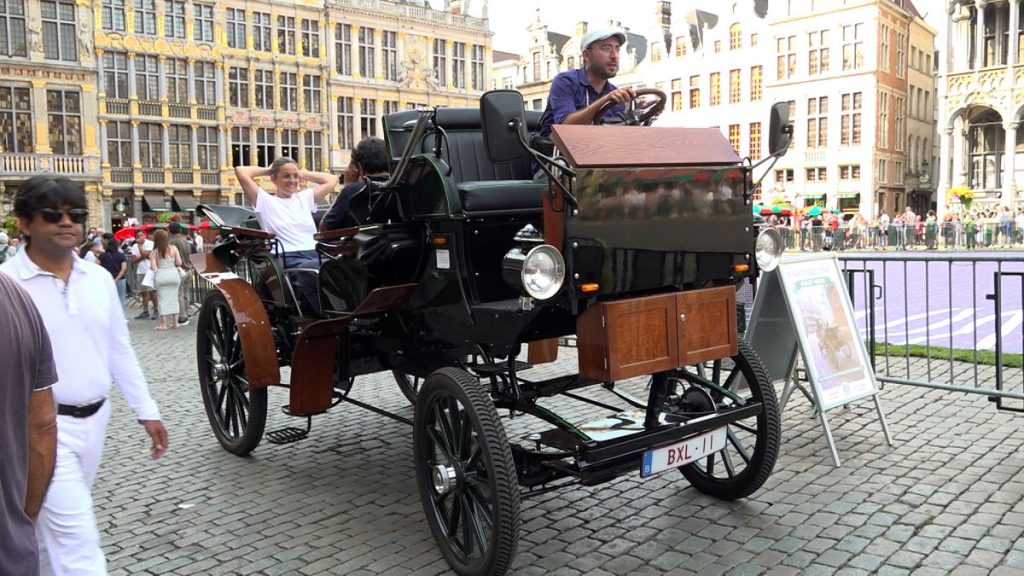In June of 2022, Brussels became the first city in Europe to fully transition from horse-drawn carriages to electric ones for city tours. This change was initiated by Thibault Danthine, who won a call for funding from the city of Brussels to launch his project. Danthine cited logistical and human resource issues, as well as changing ethical attitudes towards animals, as reasons for the transition. In light of a horse dying in Seville while pulling a carriage in extreme heat, Danthine decided to sell his six horses and invest in two new electric carriages, with a third one on the way. The electric carriages, manufactured in Poland under the brand name Anderson, have a range of 120 kilometers and only need to be recharged once every two days.
The decision to switch to electric carriages has been welcomed by many city residents, such as student Sari, who appreciates the reduction in noise and smell caused by the horses in the city. Additionally, there are concerns about the welfare of the animals spending long hours pulling carriages in a city with a high volume of tourists. Danthine believes that the electric carriages will continue to attract people looking for a unique experience to share with family and friends. The entrepreneur has invested a significant amount of money into this project, viewing it as a worthwhile investment in a changing market where ethics and sustainability play an increasingly important role.
Thibault Danthine’s electric carriages are a nod to inventor Robert Anderson, who created the first crude electric carriage in Scotland in the 19th century. The modern electric carriages have the advantage of being environmentally friendly and more in line with contemporary ethical standards regarding animal welfare. The vehicles have a range and charging frequency that make them practical for city tours, offering a sustainable alternative to the traditional horse-drawn carriages, which have become increasingly untenable due to logistical challenges and changing public attitudes.
The success of the electric carriages in Brussels has attracted interest from other cities looking to make similar transitions. Danthine has already been contacted by officials from other cities who are considering adopting electric carriages for their own tourism sectors. This demonstrates a growing trend towards sustainable and ethical practices within the tourism industry, as cities seek to reduce their carbon footprint and ensure the welfare of animals involved in commercial activities. The transition to electric carriages in Brussels serves as a model for other cities to follow in order to align with the evolving expectations of tourists and residents alike.
Overall, the switch from horse-drawn carriages to electric ones in Brussels represents a significant step towards a more sustainable and ethical tourism industry. Thibault Danthine’s initiative demonstrates a commitment to innovation and responsibility in response to changing societal values and environmental concerns. The positive reception from city residents and the interest from other cities suggest that electric carriages have the potential to become the new norm in urban tourism, offering a more environmentally friendly and humane alternative to traditional modes of transportation. By prioritizing animal welfare, sustainability, and customer experience, Danthine’s electric carriages pave the way for a greener and more ethical future for the tourism sector in Brussels and beyond.


